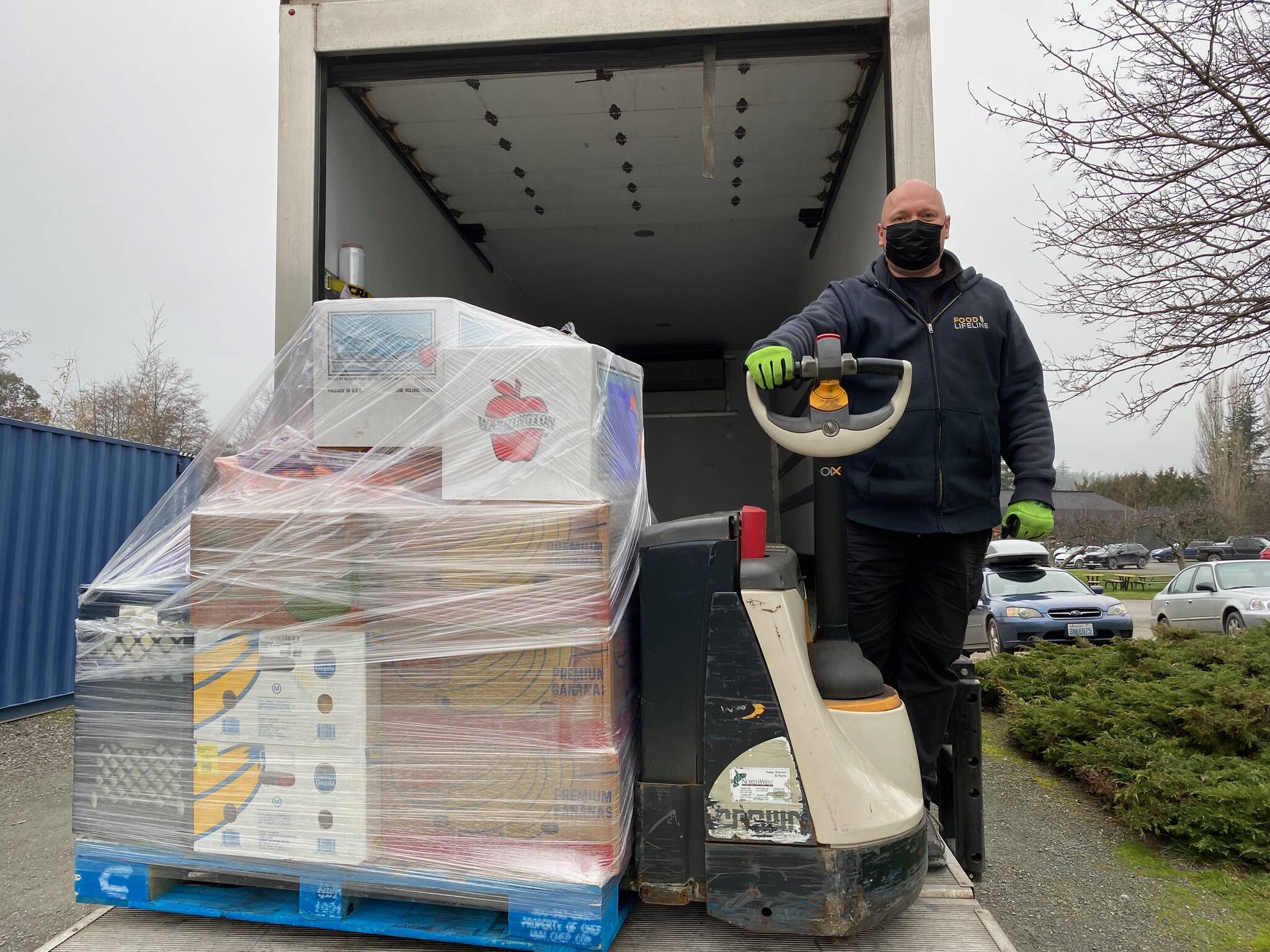by Rick Rhoads
Orcas Island Food Bank
If you look into the shipping containers in front of the Orcas Island Food Bank, the CoolBots (walk-in refrigeration units) behind the Food Bank, and the Food Bank building itself, you see cartons, sacks, crates, shelves, and glass-fronted refrigerators full of food. What you don’t see are the hundreds of people whose labor created and transported that food.
Meet Ronnie Schmidt, one of those people. Every Monday, Ronnie leaves his house in Everett at 2:00 a.m. to go to the Food Lifeline warehouse just south of Seattle. He loads his truck and is on the road for Anacortes by 3:30 to make the 7:40 ferry to Orcas. By 10:00 Ronnie unloads the pallets at OIFB, where he is greeted by a crew of Food Bank staff members and volunteers. Ronnie is the human face of a key component of OIFB’s supply chain. Food Lifeline provides 48% by weight of the food OIFB distributes.
As Ronnie heads back to the ferry terminal to make the 12:55 to Anacortes, the crew starts stowing the cartons and sacks. (Volunteer Will Rubey says, “It’s a good workout.”) The crew makes separate stacks for pickup by the Lopez Island Family Resource Center and the Friday Harbor Food Bank.
Ronnie came to the USA seven years ago from his native Denmark, where he had worked as a processor operator in a dairy plant. He had met Jill, a registered nurse and resident of Everett, online. After they had spent time together in Denmark and the US, Ronnie moved to Everett, where he and Jill married. Ronnie’s 23-year-old son lives in Denmark; Jill’s daughter, 18, and son, 15, live with Jill and Ronnie.
Ronnie volunteered at Food Lifeline while awaiting his work permit. A driver there trained Ronnie to drive a trailer truck, which enabled him to get his commercial license without paying thousands of dollars to a training school. Food Lifeline hired Ronnie and he’s been delivering food for six years.
Fridays Ronnie drives to the Foothills Food Bank in Maple Falls, Washington, close to the Canadian border; on his way south he delivers to Good Cheer Food Bank in Langley, on Whidbey Island. Tuesday through Thursday his stops are closer to the Seattle area: mobile food pantries, apartment complexes for low-income residents, senior centers, and schools. He also picks up donated food.
Food Lifeline (foodlifeline.org), which is “on a mission to end hunger in Western Washington,” believes that “access to food is a basic human right and that nobody deserves to be hungry.” The organization feeds 1.34 million people “by sourcing nutritious food from a variety of food industry partners.” Via a network of 350 food banks, shelters, and meal programs, Food Lifeline provides “the equivalent of more than 282,000 meals every single day.” Through advocacy, the organization also works to end hunger “by addressing its root causes, including poverty, racial inequity, and social injustice.”



